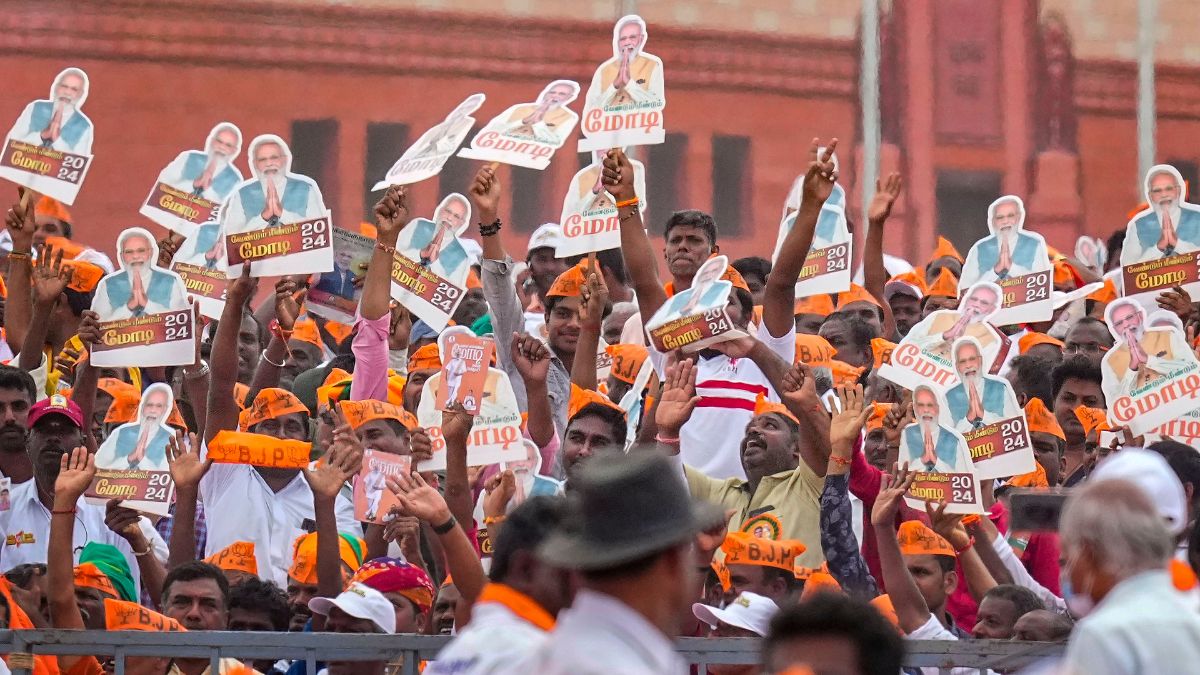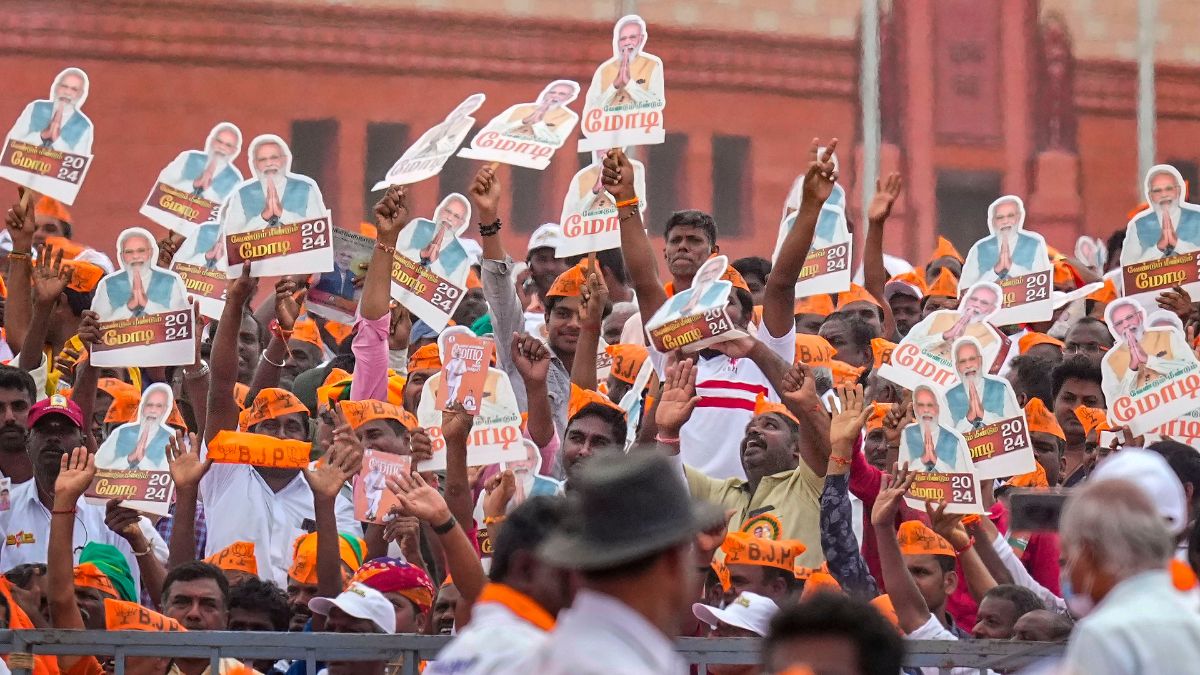On 26 June, the Supreme Court of US passed a judgment legalising gay marriage in all the 50 states of America. Over a dozen timezones away in India, where homosexuality is still a crime that can land you in prison and much of the ruling party is openly opposed to alternative sexualities, nothing changed. Except for the display pictures of many Indian Facebook users.
As soon as Facebook offered an app to apply a rainbow filter to the display picture, many users made a beeline for it, changing their DPs into the colours of pride. Almost immediately, another tribe surfaced who rolled their eyes, shook their heads and said WTF aloud (on Facebook and off it) at the alleged pointlessness and stupidity of changing your DP in India for a political development in the US.
It is true that the US judgment changes nothing for India, practically. However, assuming that changing one’s display picture to one with the rainbow filter means nothing, is also wrong.
If we can set aside cynicism for a bit, here’s what the US judgment means to people outside the country. It means that a community of people actively discriminated against, relentlessly hounded and carelessly ridiculed as anomalies in traditional narratives around sexuality, made the butt of political campaigns, has been endowed with the same rights as the heterosexual population. By saying that same-sex couples have the legal right to marry, the US Supreme Court has admitted that there is no logical, scientific ground to censure homosexuality and homosexuals. More than an acceptance of homosexuality, the US judgment is an admission that discriminating against it has been and will be stupid, illogical and irrational. That is the takeaway for India and all other countries where homosexuality faces discrimination, especially from the state.
The United States might not be the centre of the world but saying that one of the world’s most powerful democracies finally withdrawing legal roadblocks in the way of homosexuals enjoying the same rights as heterosexuals, has no symbolic value in India is very misplaced. Think about it, what does the US judgment make the Section 377 look like? An antiquated abomination in the garb of a law, right? In fact, PM Modi, usually hot on Twitter was not jumping to congratulated his new best friend President Obama with the #LoveWins hashtag. Celebrating the American victory in India, therefore, does amount to critiquing India’s stubborn resistance to change with the times.
The Facebook display pictures - for people who know what it stands for and haven’t mistaken it for the latest colourful development in the book of Facebook cool stuff - is therefore not just a pointless celebration of the politics of another country. You can accuse it of being lazy and gimmicky, but it is, at the end of the day an endorsement of the idea that your sexuality shouldn’t land you in jail especially in a country that prides itself as a liberal democracy.
Posting on Facebook, or Twitter and Instagram, is a somewhat a public ritual. You have friends, colleagues, people you met maybe just once in your life, professional contacts and sometimes even relatives in your ‘friend list’. Putting up a rainbow tinted display picture, therefore, amounts to a public endorsement of LGBT rights. And that is not to be scoffed at. When a person puts up that display picture, it does send a message to hundreds of people in his or her friends list.
Let’s face it, a greater section of our population is one, uncomfortable with the idea of homosexuality. Two, they nurse one myth too many about alternative sexuality. Three, a lot of homosexual people, out of fear of ostracism or unnecessary attention, pretend to be otherwise in professional spaces and even among friends. And it all starts, with our inability to even talk about homosexuality without biting our lips, or tittering or being plain uncomfortable.
In 2007, fresh out of college in Kolkata and a year into my first job in a small newsroom, slightly partial to traditional moralities, I met P. He had joined as a reporter in the team covering arts and culture. As a strikingly good-looking boy, also the only one with an eyebrow piercing within miles of the newsroom, he was the object of much gawking. And he was asked painfully immature questions-cum-conversation starters about the history of the piercing, or the courage needed to live, and work, in dangerously low-slung denim pants. Then someone mentioned that he is gay - no the revelation wasn’t the result of deep investigation. P had himself mentioned it in the same matter-of-fact manner as one mentions having a partner or not. Several of us reacted with wide-eyed shock.
“Gay? What, he is not girly!”
“Gay? For how long?”
“OMG, really, gay?” *followed by a long stare at him, as he typed away on his keyboard in his corner*"
“Gay? He said that himself? Just like that?”
The truth is, not very long ago, homosexuality was an idea that shocked, reviled and stunned people in even so-called liberal, non-traditional work-spaces. I consciously try not to put myself in P’s shoes and tell the story, from the fear of how silly it makes me look. Dispelling the ignorance about homosexuality, too, somewhat rests on gay people themselves. It’s as if they have to prove, “Look here, nothing’s really wrong with us.” They had to build the bridges and fill in the blanks.
Very little has changed in the past years on ground, but on the interweb, there’s much more in the way of conversations around alternative sexuality. The rainbow filtered DP, in that context, is also another step towards normalising the idea of homosexuality, in a resistant, predominantly heterosexual culture. When your timeline is flooded with little thumbnails in the colours of LGBT pride , it a mark of a greater number of people accepting that there’s nothing really ‘wrong’ about homosexuality. It’s also them telling others to catch up with the rest of the world and not be a dinosaur. Bigotry and prejudice thrive on social media as much as it thrives off it - and not just in India. Putting up the rainbow DP amounts to sending a quiet but firm message to the homophobe lurking on your Facebook feed. Now, how is that unnecessary or futile in our country where spiritual gurus promise ‘cures’ for homosexuality?
Social media is a double edged tool, yes. But one cannot ignore it’s power to influence or reflect public opinion on this day. Changing your DP may not send the Supreme Court scrambling to overturn their ruling. But neither would rolling your eyes at someone’s display picture.


)




)
)
)
)
)
)
)
)